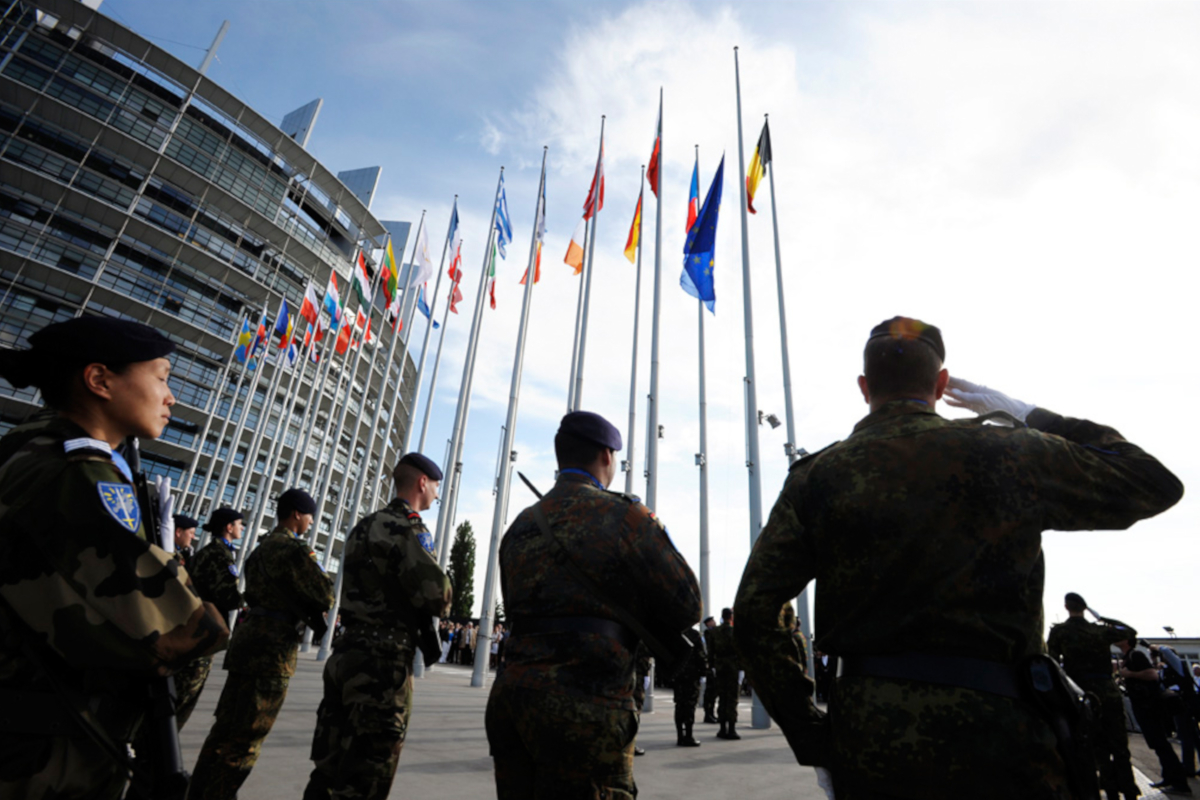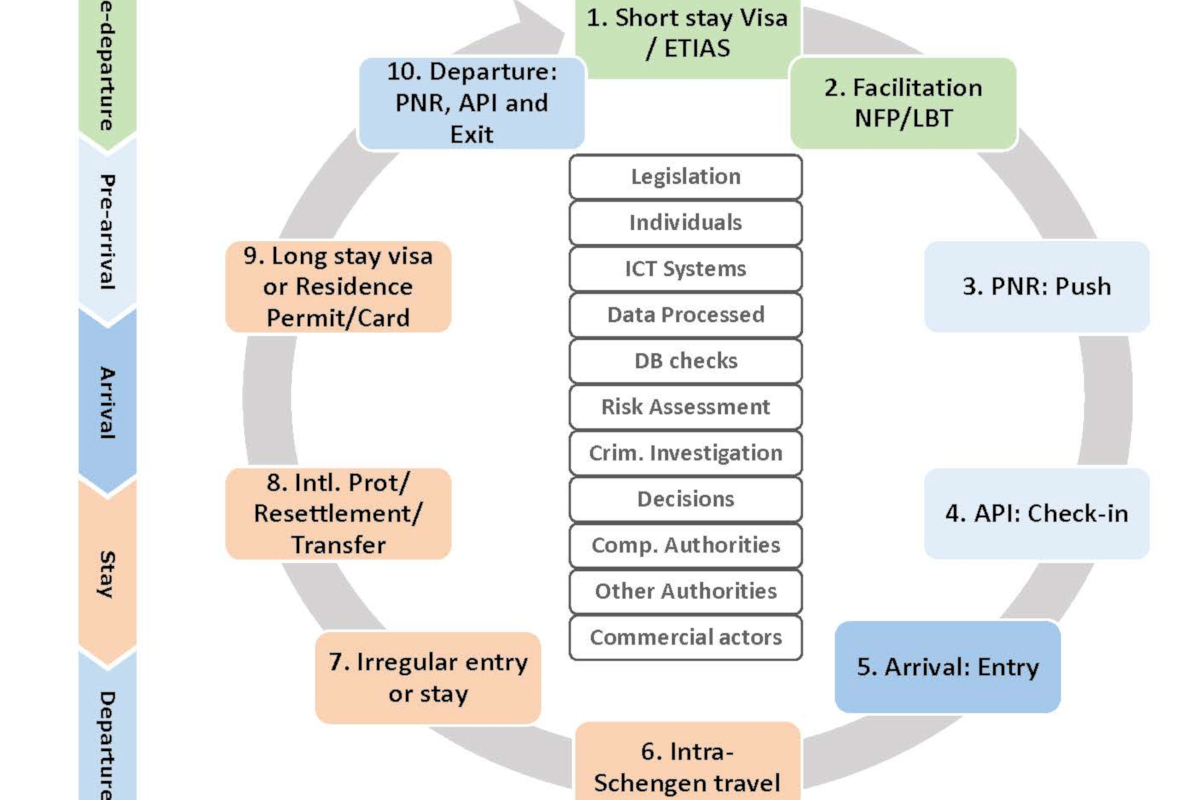EU: Council establishes new working party on defence industry as part of military push
Topic
Country/Region
31 August 2022
On 29 June, member state ambassadors to the EU agreed to create an 'Ad hoc Working Party on defence industry'. This Working Party will report to the EU Foreign Affairs Council, providing advice on draft legislative acts and other legal acts on issues related to the European defence industrial and technological base (EDTIB) – that is, the military industry at large.
Support our work: become a Friend of Statewatch from as little as £1/€1 per month.

The WP will be made up of national officials, and chaired by the rotating Presidency of the Council of the EU (currently the Czech Republic). As an ad hoc WP it is meant to be provisional (although the French Presidency, which put the proposal forward, was pushing for a permanent one) and can be dissolved every time a new Presidency takes office. Yet in practice ad hoc WPs remain active as long as the issue that justifies their existence – as the mandate for the new group (pdf) puts it, “until its mandate has been fulfilled”.
According to the decision, the ad hoc Working Party will focus on EDTIB-related issues mentioned in the European Council conclusions of 30-31 May 2022, and in particular on the recent Commission proposals on joint procurement in defence, on “measures to map the current and necessary additional manufacturing capabilities”, and on a possible European Defence Investment Programme and VAT exemption.
The new Working Party held its first meeting on 20 July, and the agenda focused on two current measures to encourage joint procurement of military equipment: the Defence Joint Procurement Task Force and the Commission proposal for a Regulation on ‘establishing the European defence industry reinforcement through common procurement act’.
The Joint Procurement Task Force was proposed by the Commission on 18 May 2022 and immediately established. It aims to help member states coordinate their very short term procurement needs, in order to “avoid a race to secure orders… spiralling prices… shortage of supplies and difficulties for the more exposed Member States to secure indispensable items” in the context of the war in Ukraine.
Forms of support could range from centralising information, providing methodological support and coordinating or managing purchases. The European Defence Agency (EDA), which is also invited to participate in the Working Party meetings, will be involved and could facilitate short-term joint procurements.
The draft Regulation on common procurement will also support joint procurement by funding part of the administrative and coordination costs with the common EU budget. This follows on from the 2017 decision to start funding military research and development with EU taxpayers’ money, a move that led to the establishment of the €8 billion European Defence Fund. Once adopted under a fast-track procedure, the common procurement instrument will devote half a billion euros in 2022-2024 to support joint procurements by at least three Member States. The funding should “benefit the European industrial base”.
This short-term instrument will be followed by a longer term programme after 2024: a European Defence Investment Program (EDIP). The draft regulation for the EDIP will be presented by the Commission in the third quarter of 2022, and will aim at establishing:
“…the conditions and criteria for Member States to form consortia that qualify as a European Defence Capability Consortium (EDCC) that will jointly procure, for the use of participating Member States, defence capabilities that are developed in a collaborative way within the EU and would benefit from a VAT exemption.”
These proposals build in particular on the Strategic Compass, a vision for EU defence policies in the next five to ten years, which was adopted in March 2022 and is clear about the role it sees for the arms industry:
“An innovative, competitive and resilient European Defence Technological and Industrial Base which guarantees security of supply and cutting-edge technologies is more important than ever and key for employment, trade, investment, security and research in the EU.”
The two current joint procurement measures, the Task Force and the 2022-2024 Regulation, are presented as emergency measures to face shortages in the context of the Russian invasion of Ukraine and the massive deliveries to Ukraine. However, they are part of an EU militarization pattern that started in 2017, well before this conflict which can be seen as an accelerating factor but not the cause. The ‘advantage’ of such urgency and consequent ad-hoc or fast-track procedures is that it reduces the possibility of oversight by parliaments or civil society.
In practice it is to be expected that this ad-hoc WP will remain in place for quite some time – strengthening the European arms industry, including its global competitiveness, has been one of the main priorities of the EU initiatives in the military realm since 2017.
In this context, EU institutions have continuously strengthened their ties with the military industry, with the European Commission arguing for “closer defence cooperation between Member States and between industries.” The establishment in 2021 by Commissioner Breton of a permanent dialogue group between the Commission and the military and security industry, the Commission expert group on Policies & Programmes relevant to EU Space, Defence and Aeronautics Industry, is another step contributing to this trend.
Contributed by Laëtitia Sédou (ENAAT) and Mark Akkerman (Stop Wapenhandel)
Documentation
- Etablissement et mandat du groupe de travail ad hoc en matière d'industrie de défense (Council doc. 10644/22, LIMITE, 28 June 2022, pdf)
- Council of the EU, Summary record - Permanent Representatives Committee (Council doc. 11524/22, 20 July 2022, pdf)
Further reading
- 3 May 202: At what cost? Funding the EU’s security, defence, and border policies, 2021–202716 March 2022: EU: Concept Note on providing arms to Ukraine
- 24 November 2021: EU: Greek-led military exercise examined intervention in fictional country of "Seglia"
- 28 October 2021: EU: Integrated Approach on Climate Change and Security, Military Vision and Strategy on Cyberspace
Image: European Parliament, CC BY-NC-ND 2.0
Our work is only possible with your support.
Become a Friend of Statewatch from as little as £1/€1 per month.
Spotted an error? If you've spotted a problem with this page, just click once to let us know.
